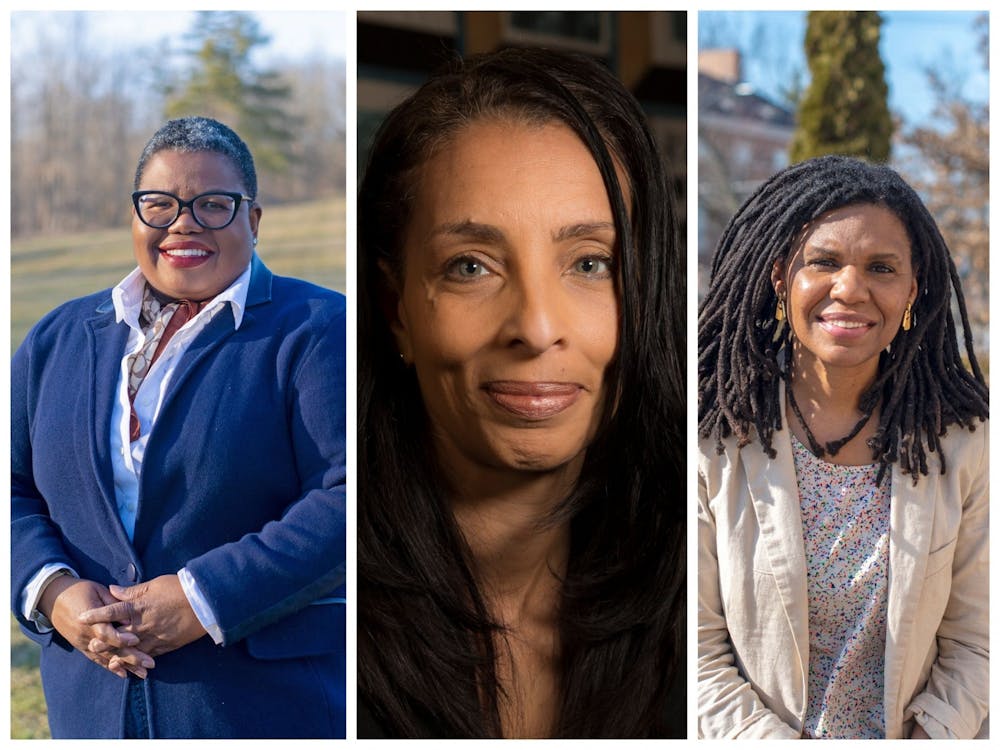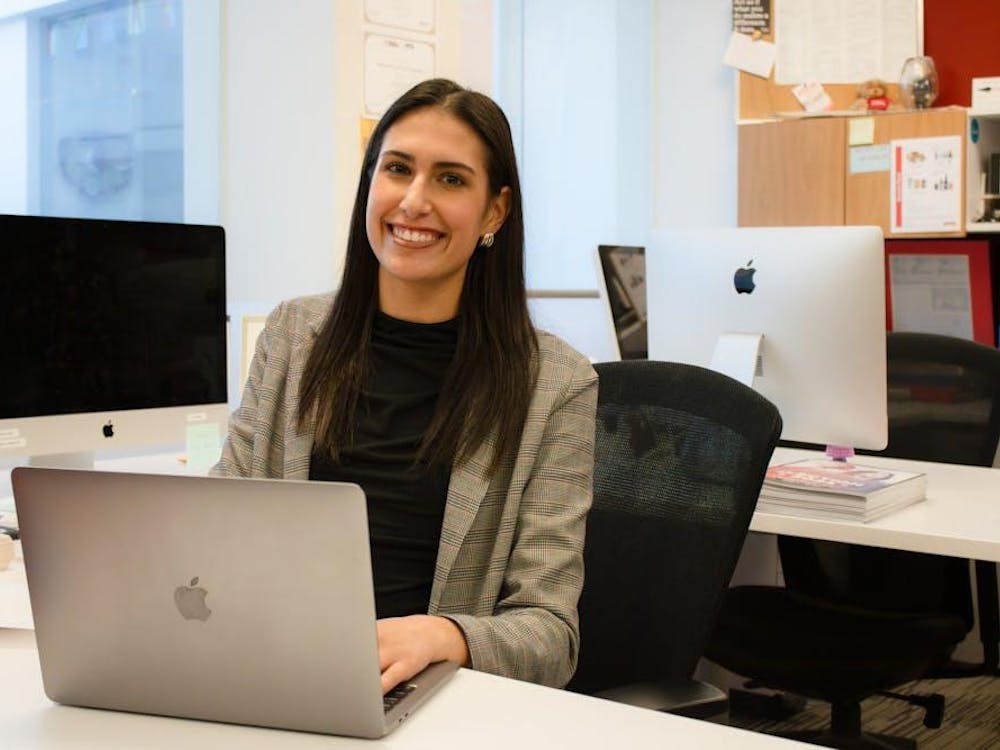After the killing of George Floyd and the rise of the Black Lives Matter (BLM) protests over the summer, universities across the U.S. began increasing diversity, equity and inclusion (DEI) efforts.
At Miami University, Black women who have been at the forefront of DEI initiatives across campus reflect on the amount of work they have done over the years and how it affects their personal and professional lives.
While some faculty have adjusted to the amount of work DEI initiatives require, some are still challenged by the workload.
Denise Taliaferro Baszile, associate dean for student services and diversity, explained that when faculty are evaluated, their responsibilities are expected to be 40% teaching, 40% research and 20% service.
“Without faculty service, the university could not function,” Taliaferro Baszile said. “It’s absolutely critical that faculty do service.”
But Taliaferro Baszile said balancing teaching, research and service can be difficult for faculty of color who take on DEI work.
“That can very easily get out of whack, where you find yourself doing way more service,” she said.
Tammy Kernodle, professor of musicology, has done DEI work both at the university and departmental level.
She said part of her wants to accept every diversity task force membership or initiative that comes her way.
“But that's a catch-22,” Kernodle said, “because then you can find yourself on 10 different committees, and you're not getting your work done, or you're not getting adequate rest or nutrition or exercise, because something’s going to suffer if you say yes.”
Kernodle said it took some time for her to realize how her service affected her other duties as a professor.
“That's why I'm very deliberate and strategic now,” Kernodle said. “I learned that the hard way in my junior years as a faculty member and taking on too much service, and that meant that other areas of my life kind of suffered.”
Enjoy what you're reading?
Signup for our newsletter
Amber Franklin, a professor of speech pathology, said she also avoided working on DEI task forces.
“I didn't want to,” Franklin said. “I didn't want to be pigeonholed, and it is extra work. So, whenever there were opportunities, I tended not to volunteer myself.”
But this changed after George Floyd was murdered. Franklin decided to join President Crawford’s DEI Task Force.
Beyond the committees Taliaferro Baszile works on, she said she still accepts leadership roles to help students of color.
“As a Black woman, I will do a lot of extra mentoring and advising and supporting of students who may just feel more comfortable with me than they do with whoever their assigned advisory is,” Taliaferro Baszile said.
But Franklin said it’s not just the physical meetings that take up time in her day. Oftentimes, the “cognitive and emotional real estate” work creates a challenge.
“For me as a Black woman, I'm constantly thinking about it and because it's now something that I'm doing actively in terms of service, I'm thinking about it even more,” Franklin said.
Similarly, Kernodle said her DEI work doesn’t end at the classroom doors.
“Any time I walk into a room, I'm a lesson in DEI,” Kernodle said.
According to Miami’s Office of Institutional Diversity and Inclusion, in 2019, about 4.5% of the university’s full-time faculty were Black. The percentage is down from the previous five years which were all above 5.3%.
Taliaferro Baszile has participated in the diversity committee for strategic planning, among many other projects during her time at Miami.
She said sometimes taking on DEI work can feel like an expectation and can be an “undue burden.”
“I do think it's tricky because we could also always say no,” Taliaferro Baszile said. “And I think it's really, really hard for faculty of color a lot of times to say no.”
Part of the difficulty Taliaferro Baszile finds with turning down these opportunities is fear of losing a diverse perspective.
“Oftentimes when we say ‘no,’ it doesn't get done,” she said, “or we're not at the table to advocate for students or other faculties [who] might not always be advocated for when there's not a diverse perspective at the table. So it's not easy to say no.”
Kernodle said one reason she has difficulty accepting roles in DEI initiatives is the end result of her work.
“In the past, these have been these glorious meetings where people throw out all of these ideas and then there's no measurable goals; there's no end game,” Kernodle said. “You don't see many of these things put into action by the upper administration.”
But Taliaferro Baszile said the work she does can be impactful to faculty of color.
“For us, this is how we survive the university,” Taliaferro Baszile said. “It’s not just about, ‘Is it good for the university or not?’ I mean, I think it's crucial to who we are in the university.”
Franklin said she doesn’t feel obligated to do DEI work, though she does take her own feelings into account before accepting the work.
“I try to lean into those opportunities,” Franklin said, “but I also am trying hard to check in with myself and recognize when I don't really have the capacity to lean into that opportunity.”
Taliaferro Baszile said she’s been involved in conversations about diversity since she was in college. She said in her time working on diversity initiatives, she has seen similar patterns across the university.
“Miami has some challenges, but it's not any different than any other university,” Taliaferro Baszile said.
Franklin said she hopes conversations around diversity continue to be a commonality at the university.
“It can't be just like this is going to die down until the next major cataclysmic event and then there's going to be another Herculean effort,” Franklin said. “That needs to be like consistent engagement and traction and consistent recognition of this labor and emotional labor.”
Taliaferro Baszile agreed there should be no endpoint in sight for DEI initiatives in universities.
“It's not a one-shot thing,” Taliaferro Baszile said. “It's not a one-year thing; it's not a one-committee thing; it's not a one-program thing; it’s ongoing work that should be central to the way we do education period.”
But she says there are still things the university could do to support the faculty it has. Taliaferro said compensation and recognition could be very impactful for faculty.
“I feel like there's always a lot of people who are on campus doing this work who do it without complaint, who do it without recognition, who do it without resources often,” Taliaferro Baszile said.
Taliaferro Baszile said Miami still has work to do when it comes to diversity, but she has hope for the future.
“We should not have to continue to say we're diverse and we should not have to continue to put on performance around diversity,” Taliaferro Baszile said, “because it will be clear for anybody who walks on campus.”
Kernodle said while in her department there may not be as many faculty of color, she hopes her work is able to inspire her white colleagues to be able to do the work themselves.
“I hope that my conversations and my proximity to my colleagues that are non-Black,” Kernodle said, “is enough to make them feel like this is important enough for them to serve and so they can be surrogates.”




